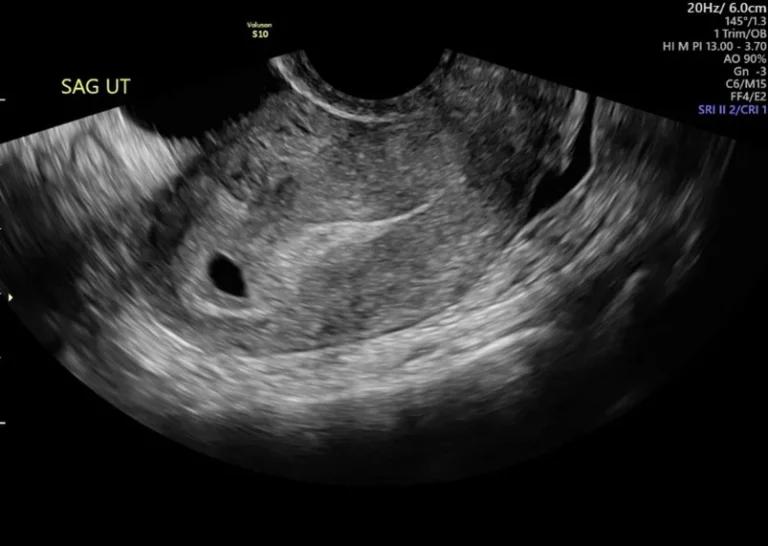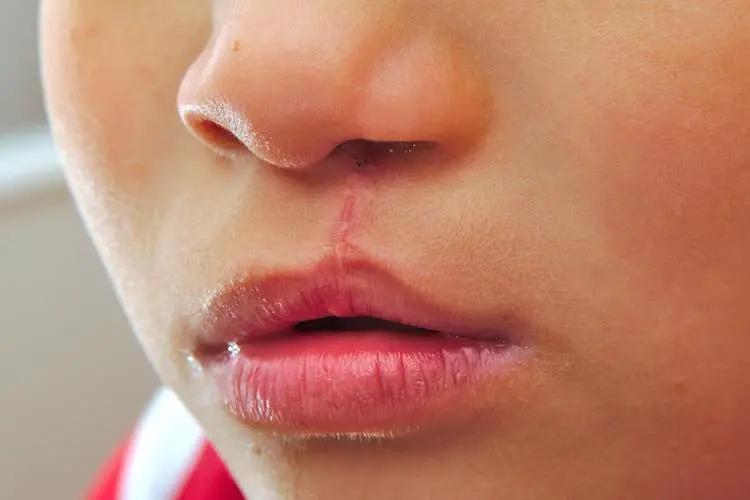
As a parent or as a parent-to-be, worrying about the health and well being of your baby is biologically programmed. We want them to be safe, healthy and reach developmental milestones. A cleft lip or cleft palate may be a concern you have or has been raised by a healthcare professional or family member. Knowing more about this topic can keep reduce your concern and the risk to your baby. There are many factors, including family history and a genetic component associated with increased risk of a baby developing a cleft lip/palate (CLP). Most of the time, a cleft is caused by environmental and genetic factors coming together in a way which can’t be predicted or prevented. Here’s what you need to know about the causes of cleft lip.
📝 What is a cleft lip & palate?
Cleft lip, with or without cleft palate, is the most common craniofacial malformation seen at birth. A cleft is a gap created when the different parts of a baby’s face don’t fully join together in the womb. It is a birth defect or congenital anomaly which a baby is born with.
Cleft lip
A cleft lip is a gap in the upper lip. It can affect one side, both sides of the lip or the middle. This can range from a small notch to a total separation of the upper lip, which can extend up to the nose.
A cleft palate is a gap in the roof of the mouth. It can affect some or all of the soft palate (the back portion of the roof of the mouth) and may extend into some or all of the hard palate (the bony front portion of the roof of the mouth). Clefts of the lip and palate can occur separately or together.
Cleft lips and palates occur during early pregnancy. Around the fifth or sixth week of pregnancy, the lips join and around the seventh or eight week the palate joins. This joining process may fail completely or stop at any point, resulting in a cleft.
📝 What kind of problems do cleft lip and palate cause?
- Ear infections and hearing loss. Ear infections are often due to problems with the tube that connects the middle ear and the throat. A build-up of fluid in the ears (glue ear) can also lead to hearing problems
- Feeding difficulties. Feeding difficulties occur more with cleft palate abnormalities. The infant may be unable to suck properly because the roof of the mouth is not fully formed
- Speech problems. Muscle function may be reduced due to the opening of the roof of the mouth and the lip, leading to a delay in a child’s speech. Speech therapy may be recommended
- Dental problems. The abnormalities around the mouth may lead to teeth not developing normally, orthodontic treatment may be required
📝 What is the main cause of cleft lip and palate?
The exact causes of cleft lip and cleft palate are not completely understood. Evidence is mixed, suggesting the conditions may be genetic. Other research suggests the condition is multifactorial, a combination of genetic and environmental factors affecting the mother during pregnancy, such as smoking, diabetes or the use of certain medications.
The exact reason why this happens to some babies is often unclear, but here are some possible risk factors:
Genes
A cleft can be associated with a change in a chromosome or a gene. Having a family history of cleft lip or palate increases the chance of your child having this condition. It’s extremely hard to predict how future children will be affected without detailed genetic analysis. As a general rule, the more people who have a cleft in a family and the closer they’re related to a child, the more likely that child is to have a cleft.
Where there is no family history and the cleft was not caused by a syndrome or condition one in 700 live births are affected. These are known also known as non-syndromic cleft lip and palate (NSCL/P) or non-syndromic orofacial clefts.
If neither parent has a cleft, but they have one child with a cleft, the likelihood of another child also having a cleft is 2-8% and this goes up the more children with a cleft they have.
Some studies looking into the causes of oral clefts, cleft lip with/without cleft palate, and isolated cleft palate have looked at candidate genes (genes that are believed to be related to a particular trait) and how they contribute to this condition. Multiple genes have been associated with cleft lip and cleft palates, such as TGF-α, BCL3, DLX2, MSX1, TGFB3, transcription factor gene TBX22 and IRF6.
A healthcare professional may refer you to a genetic counsellor who can help figure out your risk of having children with cleft lip and cleft palate in the future.
Genetic syndromes
Cleft lip or palate also known as syndromic cleft lip and palate (SCL/P) are found in more than 400 syndromes;
- Pierre Robin
In this condition babies are born with a small lower jaw, breathing problems and often have a cleft of the palate. The breathing problems start either from or shortly after birth and are often also associated with feeding difficulties and problems gaining weight.
- Van der Woude syndrome
It is also caused by a variety of mutations in the IRF6 gene and is an autosomal dominant pattern. Symptoms of Van der Woude syndrome include cleft lip, cleft palate or both conditions, lip pits on one or both sides of the lower lip, wet-looking lower lip and missing teeth
- Popliteal pterygium syndrome
It is caused by a variety of mutations in the IRF6 gene and it is inherited in an autosomal dominant pattern (meaning one copy of a mutated gene from one parent can cause the disease). It is a similar disorder to Van der Woude syndrome but also includes skin and genital abnormalities
This is a genetic disorder that occurs when a person has an extra copy of chromosome 21. The condition causes life long intellectual disability and development delays. The physical signs include a short neck, small ears and slanted eyes that point upwards
Approximately 30 percent of cleft defects are associated with a genetic syndrome. Genetic testing can be used to find out whether a person is carrying a specific altered gene (genetic mutation) that causes a particular medical condition.
Environmental factors
There are things that can happen just before or during pregnancy:
- Taking medication. Certain medications such as anti seizure drugs, some acne treatments and methotrexate, a drug commonly used for treating cancer, arthritis and psoriasis can increase the risk of cleft lip and palate
- Smoking
- Alcohol consumption
- Health conditions such as diabetes, obesity, folic acid deficiency
- Exposure to certain viruses or chemicals during pregnancy
How can environment factors be prevented
There are steps you can take to lower your risk of having a baby with a birth defect:
Take folic acid
Folic acid is a vitamin that every cell in your body needs for healthy growth and development. It is also known as vitamin B9 and is present is various foods such as:
- Dark leafy vegetables
- Lentils and beans
- Oranges and orange juice
- Wholegrain foods
- Chicken, shellfish and liver
- Fortified foods with added folic acid, including some brands of breakfast cereals
It is already commonly known that folic acid is a prenatal vitamin that reduces the risk of neural tube defects, such as spina bifida, during the first trimester of pregnancy.
Lose weight before pregnancy
It is ideal to get to a healthy weight before you get pregnant. Discuss with your health care provider about the right weight for you. Being overweight or obese during pregnancy can cause problems for you and your baby. Talk to your doctor about how much weight you may gain during pregnancy.
Stop smoking
Smoking during pregnancy increases the risk of having a baby with health problems at birth. It can cause early labour, premature births, low birth weight and birth defects such as cleft lip and other health problems. Quitting smoking, even if you’re already pregnant, can make a big difference in your baby’s life.
Stop drinking alcohol
Drinking alcohol during pregnancy makes it more likely to have a premature birth, birth defects and fetal alcohol spectrum disorders. Alcohol passes directly from your body to your baby’s and can cause serious health problems for your baby.
Get your diabetes under control
If you have diabetes plan your pregnancy, as it is important to get your diabetes under control 3 to 6 months before you get pregnant. Managing diabetes when pregnant requires extra attention and care. You’ll need extra prenatal care check-ups, so your provider can make sure you and your baby are doing well.
📝 Conclusion
The causes of cleft lip and palate are not clear, but are likely to be a combination of genetic and environmental factors. Smoking, medical conditions such as diabetes and taking certain medicines can increase the risk. Cleft lip and cleft palate repair can be done through surgery early in life and in the vast majority of cases, surgery is very successful.
Sources
- Cleft lip and palate – NHS
- Cleft Lip & Cleft Palate: Causes & Treatment
- Cleft Lip/Cleft Palate – Birth Defects – CDC
- Cleft Lip & Palate Association
- Genetics and orofacial clefts: a clinical perspective – British Dental Journal
- Mutations in IRF6 cause Van der Woude and popliteal pterygium syndromes – Nature Genetics
NowPatient has taken all reasonable steps to ensure that all material is factually accurate, complete, and current. However, the knowledge and experience of a qualified healthcare professional should always be sought after instead of using the information on this page. Before taking any drug, you should always speak to your doctor or another qualified healthcare provider.
The information provided here about medications is subject to change and is not meant to include all uses, precautions, warnings, directions, drug interactions, allergic reactions, or negative effects. The absence of warnings or other information for a particular medication does not imply that the medication or medication combination is appropriate for all patients or for all possible purposes.








